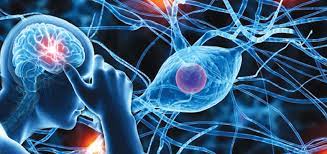
Advancements in Neurology Treatments: Revolutionizing Care for Neurological Disorders
Neurology Treatments: Advancements in Neurological Care
Neurology, the branch of medicine dedicated to the study and treatment of disorders affecting the nervous system, has witnessed remarkable advancements in recent years. These advancements have revolutionized the way we diagnose and treat various neurological conditions, offering hope and improved quality of life to millions of patients worldwide.
Understanding Neurological Disorders
The nervous system is a complex network that controls and coordinates all bodily functions. When this intricate system encounters disruptions or abnormalities, it can result in a wide range of neurological disorders. Conditions such as stroke, epilepsy, Parkinson’s disease, Alzheimer’s disease, multiple sclerosis, and migraines are just a few examples of the many neurological disorders that can significantly impact an individual’s well-being.
Advancements in Diagnosis
Precise diagnosis is crucial for effective treatment planning. Technological advancements have greatly enhanced our ability to accurately diagnose neurological disorders. Magnetic Resonance Imaging (MRI), Computed Tomography (CT), Positron Emission Tomography (PET), and Electroencephalography (EEG) are some of the diagnostic tools that allow neurologists to visualize and analyze brain activity and structure.
In addition to imaging techniques, genetic testing has also played a significant role in diagnosing certain neurological conditions. By identifying specific genetic markers associated with inherited disorders like Huntington’s disease or muscular dystrophy, doctors can provide early intervention strategies and personalized treatment plans.
Treatment Options
Neurology treatments aim to alleviate symptoms, slow down disease progression, or even cure certain conditions. Advancements in pharmacology have led to the development of more targeted medications that can effectively manage symptoms and improve quality of life for patients with neurological disorders.
For some conditions, surgical interventions have become increasingly precise and less invasive. Techniques such as deep brain stimulation and laser ablation offer new hope to patients with movement disorders or brain tumors, allowing for better outcomes and faster recovery times.
Furthermore, neurorehabilitation programs have evolved to address the unique needs of individuals with neurological conditions. These programs combine physical therapy, occupational therapy, speech therapy, and other specialized therapies to help patients regain lost function, improve mobility, and enhance overall well-being.
The Future of Neurology Treatments
The field of neurology continues to advance rapidly. Researchers are exploring innovative approaches such as stem cell therapy, gene therapy, and neurostimulation techniques to unlock new treatment possibilities. Additionally, artificial intelligence (AI) is being utilized to analyze vast amounts of data and improve diagnostic accuracy.
Collaboration between neurologists, researchers, engineers, and technology experts is driving these advancements forward. As our understanding of the nervous system deepens and technology continues to evolve, we can expect even more breakthroughs in neurology treatments in the years to come.
In conclusion, the progress made in neurology treatments has brought new hope for patients living with neurological disorders. From improved diagnostic techniques to innovative treatment options, individuals facing these conditions can now benefit from more effective care. As research continues and technologies advance further, we can anticipate a future where neurological disorders are better understood and managed with even greater success.
Seven Essential Tips for Optimizing Neurological Health and Treatment Outcomes
- 1. Follow your neurologist’s treatment plan diligently.
- 2. Take prescribed medications as directed and inform your doctor of any side effects.
- 3. Engage in regular physical exercise, as it can help improve neurological function.
- 4. Maintain a healthy diet rich in nutrients that support brain health, such as omega-3 fatty acids.
- 5. Manage stress effectively through relaxation techniques like meditation or yoga.
- 6. Stay mentally active by engaging in activities that challenge your brain, such as puzzles or learning new skills.
- 7. Seek support from a neurology support group or therapist to cope with the emotional aspects of living with a neurological condition.
1. Follow your neurologist’s treatment plan diligently.
When it comes to neurology treatments, one crucial tip is to follow your neurologist’s treatment plan diligently. Your neurologist is a specialized medical professional who has carefully crafted a treatment plan tailored specifically to your condition and needs. By adhering to their recommendations, taking prescribed medications as directed, attending scheduled appointments, and following any lifestyle modifications they suggest, you can optimize the effectiveness of your treatment and improve your overall well-being. Consistency and commitment in following your neurologist’s plan are key to managing and potentially alleviating symptoms associated with neurological disorders. Remember, your neurologist is there to support you on your journey towards better health, so trust their expertise and stay dedicated to the prescribed treatment plan.
2. Take prescribed medications as directed and inform your doctor of any side effects.
When undergoing neurology treatments, it is crucial to follow the prescribed medication regimen as directed by your doctor. Medications play a vital role in managing and controlling neurological disorders, and taking them consistently and as instructed is essential for optimal results. It is equally important to communicate openly with your doctor about any side effects you may experience. By promptly informing your healthcare provider about any adverse reactions, they can make necessary adjustments to your treatment plan or recommend alternative medications to ensure your well-being and maximize the effectiveness of your neurology treatment. Open communication with your doctor is key in achieving the best possible outcome for your neurological condition.
3. Engage in regular physical exercise, as it can help improve neurological function.
Regular physical exercise has been shown to have numerous benefits for neurological function. Engaging in physical activity stimulates the release of endorphins, which can improve mood and reduce stress, both of which are beneficial for overall brain health. Exercise also promotes the growth of new neurons and strengthens existing neural connections, leading to improved cognitive function and memory. Furthermore, physical exercise increases blood flow to the brain, delivering oxygen and nutrients that support optimal brain function. By incorporating regular exercise into your routine, you can enhance neurological function and support a healthier brain.
4. Maintain a healthy diet rich in nutrients that support brain health, such as omega-3 fatty acids.
Maintaining a healthy diet is crucial for supporting brain health, especially when it comes to neurology treatments. One important tip is to incorporate foods rich in nutrients that promote brain function, such as omega-3 fatty acids. Omega-3s have been shown to have numerous benefits for the brain, including reducing inflammation and supporting cognitive function. Foods like fatty fish (such as salmon and trout), walnuts, flaxseeds, and chia seeds are excellent sources of omega-3 fatty acids. By including these nutrient-rich foods in your diet, you can provide your brain with the essential building blocks it needs to thrive and support your overall neurological well-being.
5. Manage stress effectively through relaxation techniques like meditation or yoga.
Managing stress effectively is crucial when it comes to neurology treatments. One valuable tip is to incorporate relaxation techniques such as meditation or yoga into your routine. These practices have been proven to reduce stress levels, promote a sense of calmness, and improve overall well-being. By incorporating meditation or yoga into your daily life, you can potentially alleviate the negative impact of stress on your neurological health. These techniques not only provide a much-needed break from the demands of everyday life but also enhance mental clarity and promote a healthier mind-body connection. So, take some time for yourself and explore the benefits of relaxation techniques in managing stress for better neurological health.
6. Stay mentally active by engaging in activities that challenge your brain, such as puzzles or learning new skills.
Staying mentally active is an essential aspect of maintaining brain health, especially when it comes to neurology treatments. Engaging in activities that challenge your brain, such as puzzles or learning new skills, can have a positive impact on cognitive function and overall well-being. These activities stimulate neural connections and promote the growth of new brain cells, which can help prevent cognitive decline and improve memory and problem-solving abilities. By making a conscious effort to keep your mind active, you are actively contributing to your neurological health and enhancing your quality of life.
7. Seek support from a neurology support group or therapist to cope with the emotional aspects of living with a neurological condition.
Living with a neurological condition can be emotionally challenging, and seeking support from a neurology support group or therapist can make a significant difference in coping with these emotional aspects. Connecting with others who are going through similar experiences can provide a sense of understanding, empathy, and belonging. Support groups offer a safe space to share concerns, exchange advice, and gain valuable insights from others who have faced similar challenges. Additionally, working with a therapist specialized in neurology can provide guidance and strategies to manage stress, anxiety, depression, or any other emotional difficulties that may arise. By addressing the emotional aspects of living with a neurological condition, individuals can enhance their overall well-being and improve their ability to navigate the journey ahead.



